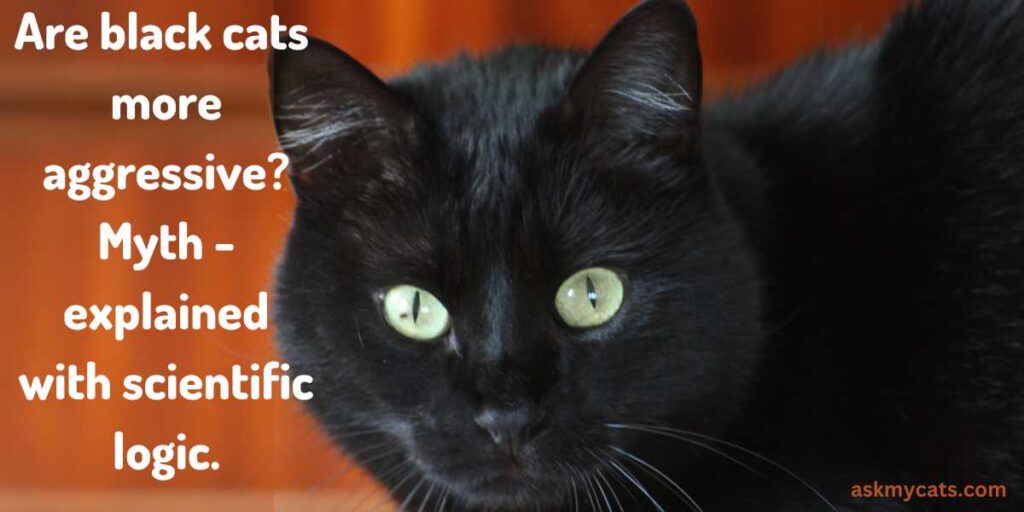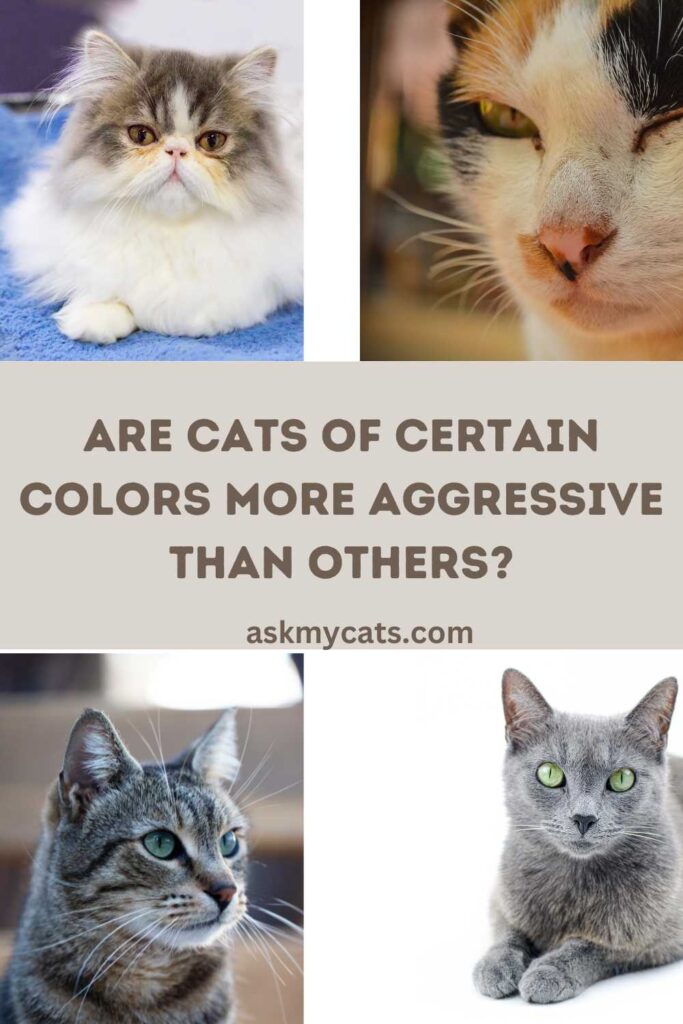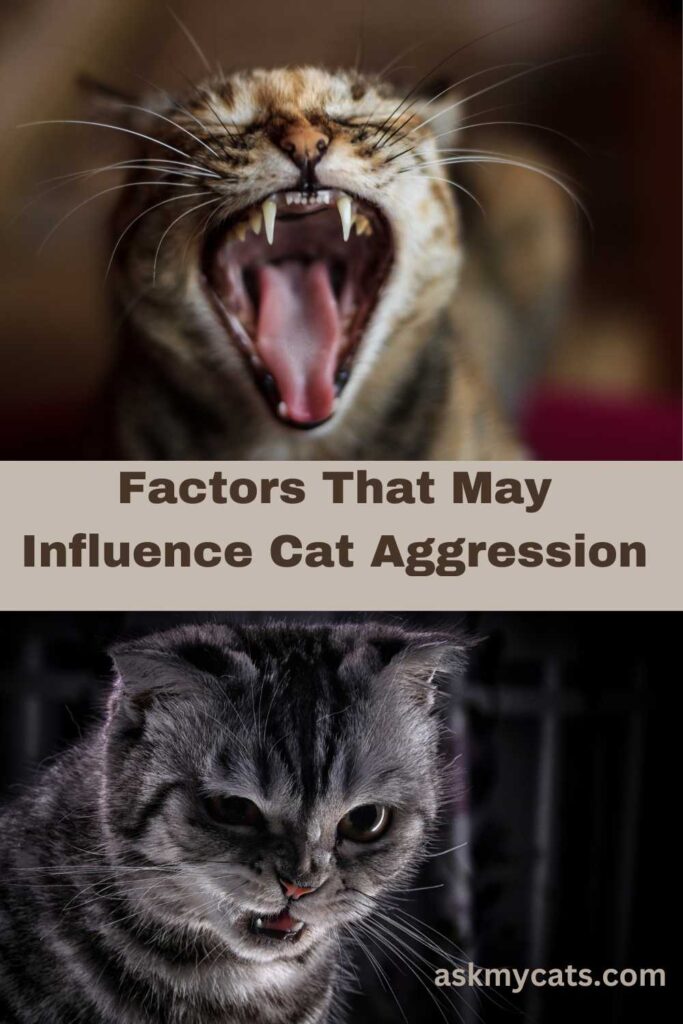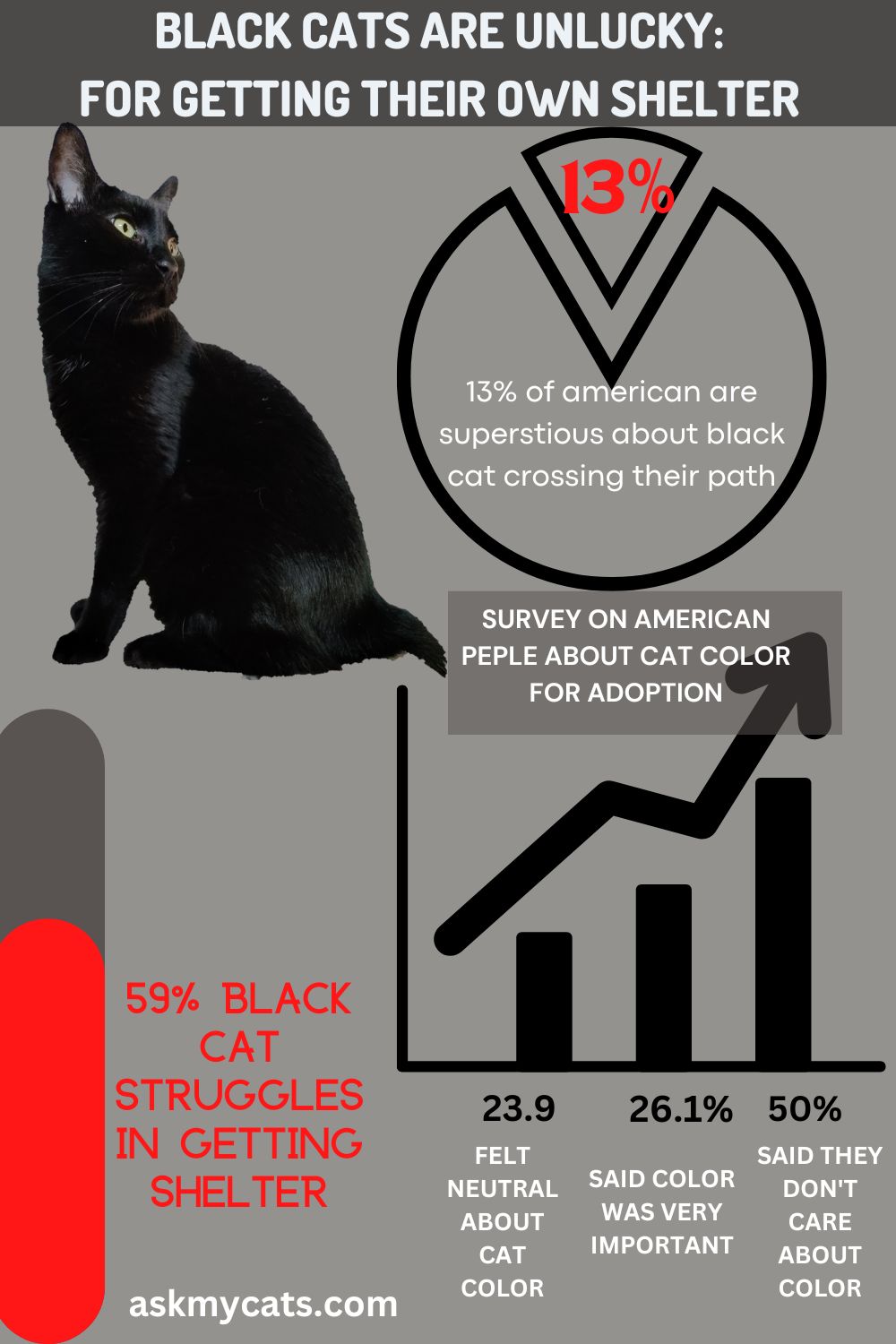Hello, curious explorer!!
Don’t you feel the word ‘Black cat’ itself reflects the mystery; isn’t it?
For several causes, black cats have the typical and unfair status of being more aggressive than all other colored cats.
Doesn’t it sound funny that people judge – “cat will be aggressive or calm or dramatic, just by her color? This is not just my question but even this question has mystified cat owners and scientists too.
A black cat crossing your path – This is since primeval superstitions when people use to relate this with bad luck.
But there are black – feline lovers too, they argue that black cats are more friendly and calmer than other cats. So, basically, it’s a controversial question – but let’s leave the history behind; in this article, we will clear all your doubts and confusion about the aggression of black cats with scientific logic.
Are you ready? Let’s jump into the mystery together!!
Key Takeaways
- Black cats have a stereotypical reputation for being aggressive, but this is not true.
- Studies have shown that black cats are in fact friendlier and calmer than other cats.
- A cat’s behavior is based on its experience and environment, not its color.
- The aggression of cats can be due to various factors, including their past experience, environment, and training.
- Another study found that aggressive behavior in cats is often associated with stress.


Give Your Cat the Perfect Day
Get the Free Ebook!
Are Black Cats Usually More Aggressive Than Other Cats?
No; Black cats are not more aggressive than other colored cats, they just have a stereotypical repo of being the most aggressive type of cat. In fact, studies show that black cats are way more friendly and calm than other cats.
But one fact you should know is that any cat can be aggressive, but it’s not about its color. In fact, it’s about their past experience; they might be loved or abused way beyond tolerance.
So, it’s about the situation they faced in their life and training is another responsible factor of aggression in cats.
So, in short, your cat’s behavior is based on her experience rather than her appearance.
Are Cats Of Certain Colors More Aggressive Than Others?

We all must have heard about cat color coat perception.
Though a cat’s behavior and attitude are more related to her environment and experience instead of color, still color can be one of the factors of aggression.
There are several studies that confirm that tortoiseshell cats have their own ‘tortitude’, basically, they have a little more aggression and attitude than other color cats.
According to a study published in the Journal of Applied Animal Welfare Science suggests that calicos & torties color cats are more aggressive than cats of other colors.
“The authors explored a possible relationship between coat color and aggressive behaviors in the domestic cat.
This study used an Internet-based survey to collect information on coat color, affiliative behaviors toward cats/humans, agonistic behaviors toward cats/humans, and other “problem” behaviors, and cat and guardian demographic data.
A total of 1,432 cat guardians completed the online survey; after exclusions based on the study protocol, data analysis included 1,274 completed surveys.
Guardians reported sex-linked orange female (tortoiseshells, calicos, and “torbies”), black-and-white, and gray-and-white cats to be more frequently aggressive toward humans in 3 settings: during everyday interactions, during handling, and during veterinary visits.
Kruskal-Wallis’s 1-way analysis of variance was used to compare possible differences between the 2 sexes and among different coat colors.
Analyses of aggression due to handling, as well as aggression displayed during veterinarian visits, showed little difference among coat colors in these settings.”
a study published in the Journal of Applied Animal Welfare Science
You might also like to know about Black Cat Spiritual Meaning
Studies On Cat Aggression
Cats’ aggression is as famous as cats themselves. If you own a kitty, then you know – I’m talking about ‘catitude’. They hold this behavior from their ancestors who used to live in woods with higher domination and aggression traits.
They show their aggression by biting and scratching. They even show aggression toward their owner from time to time.
So, it will be unfair to decide cats’ aggression on one factor. There are several studies took place to know about the factor of cats-
“Aggression towards owners is a common behavioral problem in cats, particularly in cats that have been obtained from pet shops or other sources where there has been inadequate socialization with people, and in those kept only indoors.
Very often aggression is associated with a stress response, and it may potentially lead to relinquishment and euthanasia of the cat.
Therefore, preventing and treating owner-directed aggression has significant benefits for the welfare of the cat and the quality of the cat-owner bond.”
According to a study published in Sage Journals based on ‘Common feline problem behaviors: Owner-directed aggression
Research on cat aggression and redirecting of it is published in AVMV Journal – “Evaluation of inciting causes, alternative targets, and risk factors associated with redirected aggression in cats” aimed to identify inciting causes, alternative targets, and risk factors associated with redirected aggression in cats.
They found 22 incidents of redirected aggression were reported for the 19 case cats. In 95% of those incidents, loud noises or interactions with other cats were identified as the inciting stimuli. Case cats most commonly redirected their aggression toward the owner, followed by another cat living in the same household.
Compared with control cats, case cats were more likely to have a sound phobia but were less likely to be outdoor cats. In addition, case cats were more likely to be from small households (≤ 2 people) than control cats.
In most situations, case cats had adopted a defensive body posture immediately before the incident of redirected aggression, which suggested that the underlying motivation was fear.
Fear was likely the most common motivation for redirected aggression in the cats in this report. To reduce the risk of redirected aggression, veterinarians should encourage owners to socialize kittens and habituate them to novel objects and sounds.
Also, check out what it mean when a black cat comes to your house
Studies Specifically Examining Black Cats And Aggression
According To Black Cat Bias: Prevalence and Predictors “There is anecdotal and empirical evidence for black cat bias, the phenomenon where cats (Felis silvestris catus) with black coats are viewed more negatively, adopted less often, and euthanized more often than lighter colored cats.
Despite the anecdotal claims, there is scarce empirical evidence for black cat bias. Using evaluations of cat photos, the researchers examined differences in people’s attitudes toward black and non-black cats of various colorations on measures of perceived aggression, perceived friendliness, and willingness to adopt.
The researchers also explored whether participants’ levels of religiosity, superstitious beliefs, and prejudicial racial attitudes were related to black cat bias.
Finally, the researchers explored whether black cat bias was related to difficulties people had in reading the emotions of black cats compared to non-black cats.
This study provided evidence of black cat bias in the sample. People exhibiting higher degrees of black cat bias had higher levels of superstition, but not religiosity or racial prejudice.
Interesting Read: Why Do All Black Cats Look The Same?
Additionally, people who had difficulty reading the emotions of black cats tended to exhibit a stronger bias against adopting black cats.”
According to a study published in Psychology Today “the researchers found that contrary to expectations, black and non-black cats did not differ in rated adoptability.
However, the results otherwise supported the black cat bias and provided three possible explanations for why people do not adopt black cats:
Psychology Today
- People think that black cats are less friendly and more aggressive. On average, black cats were rated as less friendly (M = 35.46, SD = 7.29) than non-black cats (M = 37.10, SD = 7.11), and more aggressive (M = 20.86, SD = 8.09) than non-black cats (M = 19.31, SD = 6.95).”
Overview-
Based on these studies we can say that science is not in favor of historical superstition which means black cats are not the most aggressive cats instead they are the calm and friendly cats.
Its superstition and early illogical belief projects the black cats as a symbol of fear and aggression.
Though there are thousands of religious perceptions prevailing even in modern society, still there are black cat owners who believe their black feline is not fit in those stereotypical mindsets about black cats.
Interesting Read: Are Black Cats Hypoallergenic?
The Lack Of Evidence Linking Coat Color To A Cat’s Personality Or Behavior
There is a predominant misunderstanding that coat color in cats can decide their behavior and personality. They consider black cats as aggressive and aloof whereas white cats as friendly. But excuse me; Is it so?
Anyways, science and studies are still not clear about the relationship between cats’ color and their personality. In fact, cat color is nothing but a genetic factor, and it has nothing much interest to spoil your kitty to be aggressive.
Though there are several studies based on the interlink between cat coat color and personality. For example, a few studies found that orange cats are more friendly and tortoise cats are more attitude-holding cats. But the problem is that all those studies have different results.
In fact, few studies got just the opposite results as others. The reason for the different outcomes is that- these studies were done in specific countries and environments.
So, there is no study or scientific explanation that covers all the factors in the color coat research of cats. Each study has some limitation and drawback, that makes them insufficient to be proof of the relationship between cats’ color and their personality.
Must Read: What Does It Mean When A Black Cat Stares At You?
The Importance Of Evaluating A Cat’s Personality On An Individual Basis
As we humans have our personalities based on the environment we have grown up in and the experience we had. Similarly, cats tend to have their personality depending on their environment and surrounding.
Like other cats, black cats also have their own personality beyond their fur color. Though it can be true that few black cats may possess aloof and less bonding characters, but there are sweet, fun-loving, friendly black cats are also common in our surroundings.
But you won’t find them with the spectacles of superstition and orthodox.
As cat lovers and owners, in fact beyond everything as a human, we should not be too unfair to judge a cat by her appearance or color.
Instead, we should give our time to different varieties and different colors of cats to understand their personality and behavior without any prejudiced mindset.
In today’s reality historical perception about black cats is fading slowly and people are being aware of black cats’ adoption benefits too.
The adoption rate of black kitties also growing up every year and people are ready to see black cats just as cats with black fur – nothing more nothing less.
As cat lovers, we are always in favor of equality when it comes to the adoption of cats. As every cat has a similar right to get home and love.
askmycats Recommendation
Black cats are the most loving friends you can have in your life. Provide them comfort and entertainment.
Check out this Fun Playhouse you can gift to your Black Cat.
Interesting Read: Do Black Cats Live Longer? Myth or Fact?
Factors That May Influence Cat Aggression

Breed And Genetics
Genes and breeds are responsible for carrying traits from parents, mostly in all living creations. Cats’ aggression can be carried from their genes but not in all cases.
There can be calm and relaxed cats with aggressive parents, whereas you can see too aggressive cats with gentle parents.
In general, 2 weeks behavior of kittens is a permanent trait. Later they adapt it according to their environment and surrounding.
So just blaming the genes or breeds of a cat for aggression is not appropriate.
Interesting Read: Are Black Cats Bad Luck?
Environment And Socialization
Cats’ environment is one of the most important factors in cats’ aggression rate. Any changes or discomfort in her environment can change a normal kitty to the most aggressive cat.
Cats from loving and caring environment are more likely to be polite and calm whereas cats from ignorant environments are found to be aggressive.
Health And Age
Cat with the underlying disease has anger and aggression as an outcome of pain or irritation from the disease. If a kitty is becoming aggressive out of blue, then there are higher chances that she is tolerating any physical or mental disease.
This disease can be obsessive hyperthyroidism, nervous system disorders, compulsive disorder, metabolic or hormonal disorders, lead poisoning, fungal or bacterial infections, liver disorders, etc.
Just like humans’ cats also have more diseases and complexion with growing age. Mostly, old kitties face memory loss which results in anxiety and that causes more chances of aggression too.
Interesting read- Are Black Cats Friendly? Why Are Black Cats So Sweet?
Why You Should Adopt Black Cats?

| Benefit | Explanation |
|---|---|
| Less veterinary spends | As black cats have the highest melanin, it helps them to resist more disease compared to other cats. |
| Long life span | A good immunity system means longer life. As black cats are less likely to be infected by a disease that’s why they have higher chances of living longer. |
| Calm and friendly | Black cats are likely to be calmer and more friendly than other cats. |
| They are just cats | Beyond any superstition, they are just cats like all other cats so they have the right to get your love. |
Interesting Read: Are Black Cats Really Rare?
Frequently Asked Questions
Can I Adopt Black As Pet?
There is no doubt that you can adopt a black cat as your pet. They are calm and classy too. In fact, they have a better life span than all other cats as they have higher possession of melanin. You will get many options for black cats, there are several famous species like Bombay cats.
Are Black Female Cats More Aggressive?
No, similarly to male black cats, there is no such evidence that links black female cats to be more aggressive than other cats. Cats’ behavior is not based on their fur color instead it can be their environment, surrounding, past experience, or age that is responsible for their aggression or other behavior.
Interesting Read: Can Black Cats Have Pink Nose?
Final Words
One cannot judge a cat by its cover, I mean color!
Aggression in cats is not just driven by the color of their fur but it is related to many other factors like environment, breed, age, or past experience.
Based on several studies I can assure you that black cats are not the most aggressive cats instead they are calmer and more friendly than other colored cats.
There is no logic to discriminate black cats from other cats, on the basis of their fur color. Go ahead for adopting a classy black feline without confusion!
Are you a black cat lover or you are on the side of superstition? What do you think about the black feline behavior? Tell us in the comment section.
Must Check Out: National Black Cat Day: When And How To Celebrate?
Interesting Read: Black Cats And Halloween: History, Facts & Myths
Interesting Read: Why Does My Black Cat Have White Hairs?
Interesting Read: What Does It Mean When You See A Black Cat?
Interesting Read: Are Black Cats More Vocal?
